June 16, 2025
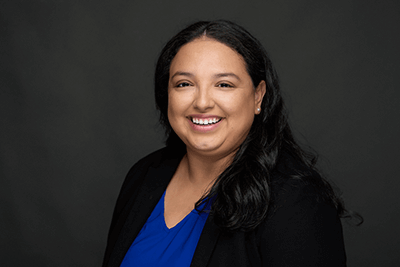
As I close my five-year chapter serving on the alumni association board, the past two as its president, I find myself reflecting on the moments that have shaped this experience.
MPA taught me to ask questions, speak with conviction, and approach each challenge with determination and curiosity.
Those lessons were instilled in me as a student, and they have never felt more relevant than they do today. In a time when resilience and integrity matter more than ever, I find myself leaning on these lessons time and again, both in life and in my service to this community.
Serving on the alumni board has been an extension of that education. It has been a place where collaboration, curiosity, and care come together to support something greater than ourselves. What began as a simple desire to give back in 2020 evolved into one of the most meaningful leadership experiences of my life. Thanks to the passion and initiatives of this board, our alumni have never been more connected to one another and to the school we all call home.
Over the years, it is not the meetings or agendas that stand out most clearly in my mind. It is the moments—conversations with fellow alumni who found lifelong friends here, the shared pride of seeing new graduates join our community, and the energy and ideas exchanged among this year’s board members, who brought such positivity and drive to our work together. These moments matter. They remind us why this community is worth nurturing.
I am deeply grateful to the MPA Development Office, Angie, Ashley, and Michelle, for your unwavering support, partnership, and belief in the importance of alumni engagement. Your dedication behind the scenes makes so much of this work possible.
To this year’s alumni association board, thank you for bringing such spirit and momentum to this chapter of our work. It has been a privilege to serve alongside you.
I would be remiss not to remind you one more time: if MPA has made a difference in your life, I encourage you to create your own moments that matter. Stay connected. Get involved. Every small contribution helps keep this community vibrant for those who come next.
I will always be proud to be an MPA alum.
With heartfelt thanks,
Amanda Magistad ’12
Alumni Association President
 from Dr. Lori-Anne Brogdon, head of school
from Dr. Lori-Anne Brogdon, head of school from Rudy Ford, director of extended day and summer programs
from Rudy Ford, director of extended day and summer programs The MPA Alumni Association is pleased to announce the 2025 MPA Alumni Association Award recipient, Mason Ferlic ’11! This award honors alumni of outstanding talent pursuing their own creative, intellectual, and professional inclinations while embracing the spirit of MPA’s commitment to community and social outreach. Award recipients are real-world inspirations for both current students and fellow alumni to dream big and do right.
The MPA Alumni Association is pleased to announce the 2025 MPA Alumni Association Award recipient, Mason Ferlic ’11! This award honors alumni of outstanding talent pursuing their own creative, intellectual, and professional inclinations while embracing the spirit of MPA’s commitment to community and social outreach. Award recipients are real-world inspirations for both current students and fellow alumni to dream big and do right.
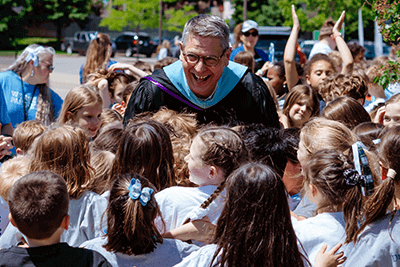 from Dr. Bill Hudson, head of school
from Dr. Bill Hudson, head of school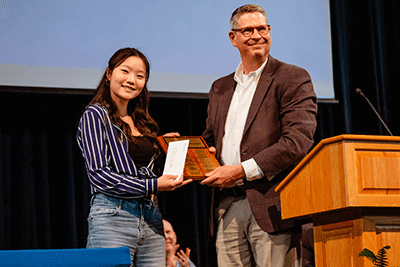 Upper School students at Mounds Park Academy dedicate tremendous time and energy to their work, embodying the values that make our community proud. In recognition of their accomplishments, MPA held the Upper School Awards Assembly on Friday, May 23 in the Nicholson Center. The event celebrated students who earned distinctions in areas such as Academics, National Merit, Scholarships, Yearbook, Choir, Band, Orchestra, Visual Art, Math, English, Science, Social Studies, Forensics, French, Spanish, Drama, Athletics, the Spirit of ’86, Certificates of Distinction, and the Alumni Association. Join us in congratulating these outstanding students!
Upper School students at Mounds Park Academy dedicate tremendous time and energy to their work, embodying the values that make our community proud. In recognition of their accomplishments, MPA held the Upper School Awards Assembly on Friday, May 23 in the Nicholson Center. The event celebrated students who earned distinctions in areas such as Academics, National Merit, Scholarships, Yearbook, Choir, Band, Orchestra, Visual Art, Math, English, Science, Social Studies, Forensics, French, Spanish, Drama, Athletics, the Spirit of ’86, Certificates of Distinction, and the Alumni Association. Join us in congratulating these outstanding students! 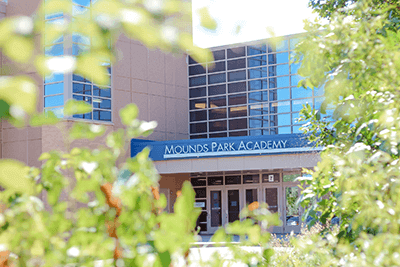 from Dr. Bill Hudson, head of school
from Dr. Bill Hudson, head of school Approaching the end of their final year roaming the halls of MPA as students, we had the honor of interviewing many of the MPA Class of 2025 Lifers about their experiences at MPA, the only school they’ve attended for their entire academic careers.
Approaching the end of their final year roaming the halls of MPA as students, we had the honor of interviewing many of the MPA Class of 2025 Lifers about their experiences at MPA, the only school they’ve attended for their entire academic careers. from Tim Koerner ’03
from Tim Koerner ’03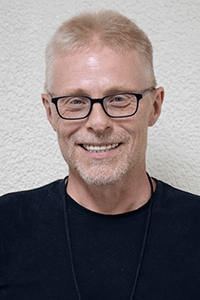 from Wade Peterson ’87
from Wade Peterson ’87